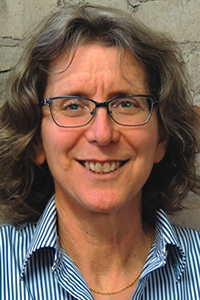
Nora Goldstein
BioCycle March/April 2016
“California Farmers Favor Municipal Composting Programs”
That was the headline of a news item in the Organic World department of Organic Gardening magazine in July 1953. BioCycle founder Jerome Goldstein had just started working at Organic Gardening (he subsequently started BioCycle in 1960, under the name Compost Science). Here’s an excerpt from the news item:
“In answer to the question, ‘Will the farmers buy the compost?’ which has long been the basis for disputing the value of municipal composting programs along California’s citrus belt, farm columnist Tom Cleveland asserts that there are encouraging indications not only that they will, but that many growers are realizing the importance of organics in general … Organics, he declares, improves the soil tilth, water penetration and water-holding capacity of the soil, as well as being relatively high in phosphorus and potash. He called for full recognition of the serious need for returning to the soil all the organic material we can get.”
The essence of the news item has Jerry’s fingerprints all over it, and if he were here today, more than 60 years later, he would likely smile and say, “that’s why we’re in this for the long game.” And while it is quite the long game, we are inching toward the end zone. In the Opening Plenary on April 5, CalRecycle Director Scott Smithline will give an overview of California’s increased pace to capture organics and get them back to the soil. He will be followed by Brian Leahy, Director of California’s Department of Pesticide Regulation. His presentation is titled “Compost Connections To California Agriculture.” That afternoon, there is a session dedicated to the California Department of Food and Agriculture’s Healthy Soils Initiative, which includes incentivizing farmers to use compost.
But it’s not just California farmers who recognize the benefits of compost. Compost application trials and demonstrations are happening in western Washington State and British Columbia. Hillsborough County, Florida’s biosolids and yard trimmings cocomposting project is targeting farmers in its region as its prime compost market.
When you think about it, whether we are talking about model municipal organics recycling programs, anaerobic digestion and digestate, organics contaminant reduction or composting BMPs, all roads lead back to returning organics to soils. To make that happen, we must collect and process the organics without public health or environmental impacts. We must keep the organics streams free of contamination. We must maximize the resource inputs required to grow food by making sure edible food gets to people — and then back to soils.
Jerry, we hear your message loud and clear: It’s a long game, but we are in it to win it.









